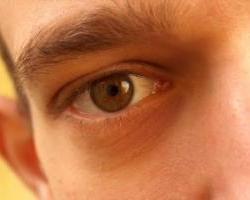Sponsored Links
Main Menu
Treatment
Self Tests
OCD
- Facts about OCD
- OCD Questions & Answers
- YBOCS: Yale-Brown OCD Scale
- Sexual Obsessions
- Hoarding & Saving OCD
- Washing & Cleaning
- Homosexuality Anxiety
- Christians & OCD
- Medication for OCD
- Combining Medication for OCD
- CBT Therapy for OCD
- Therapy for Kids with OCD
- OCD & African Americans
- Herbal Remedies for OCD
- Brain Surgery for OCD
- Treatment Resistant OCD
- OCD & Depression
- Real People's OCD Stories
- Online Therapy for OCD
Spectrum Disorders
- Obsessive-Compulsive Disorder
- Tourette Syndrome
- Hypochondria
- Body Dysmorphic Disorder
- Depersonalization Disorder
- Trichotillomania (Hair Pulling)
- Compulsive Skin Picking
- Nail Biting
- Deliberate Self-Harm
- Olfactory Reference Syndrome
- Sexual Compulsions
- Compulsive Gambling
- Kleptomania
- Eating Disorders
- Obsessive Compulsive Personality
- Autistic Disorder
Anxiety & Mood
- Panic Disorder
- Panic Attacks
- Social Anxiety & Phobia
- Taijin Kyofusho
- Specific Phobias
- Generalized Anxiety
- Traumatic Stress Disorders
- Major Depressive Disorder
- Bipolar Disorder
- OCD & Bipolar
- Depression & God
Eating Disorders and Body Image
Talk Therapy Works for People with Social Anxiety
According to a new study, psychotherapy triggers a certain alteration in the brains of people who suffer from social anxiety. This, though not really breaking news, simply reaffirms the idea that it does make sense to go the psychotherapeutic route.
Medication and psychotherapy are commonly used to treat individuals who suffer from social anxiety. Social anxiety, of course, is the disorder that people who have an overwhelming fear of interacting with others suffer from.
In this new Canadian study, 25 adults with social anxiety disorder underwent 12 weekly sessions of group cognitive behavior therapy. The purpose of this type of therapy is helping patients deal with, and delve into their incorrect thinking patterns. Then, the clinical group patients were compared to two control groups who tested either high or low for symptoms of social anxiety but got no treatment for it.
Everyone who took part in the study underwent a number of electroencephalograms that measured brain electrical interactions.
"Laypeople tend to think that talk therapy is not 'real,' while they associate medications with hard science and physiologic change," lead author Vladimir Miskovic, a McMaster University doctoral candidate, said in a news release from the Association for Psychological Science.
"But at the end of the day, the effectiveness of any program must be mediated by the brain and the nervous system. If the brain does not change, there won't be a change in behavior or emotion."
The results from this study will appear in the coming issue of the journal Psychological Science.

OCD Self Test
Do you or a loved one feel like you might have a problem with OCD?
Take the Self Test now to get more information.
Sponsored Links
The information provided on brainphysics.com is designed to support, not replace, the relationship that exists between a patient/site visitor and his/her health professional. This information is solely for informational and educational purposes. The publication of this information does not constitute the practice of medicine, and this information does not replace the advice of your physician or other health care provider. Neither the owners or employees of brainphysics.com nor the author(s) of site content take responsibility for any possible consequences from any treatment, procedure, exercise, dietary modification, action or application of medication which results from reading this site. Always speak with your primary health care provider before engaging in any form of self treatment. Click here to read our complete Terms of Use.
Call Now—Help Available 24/7 (877) 331-9311
Sign up for our newsletter to receive mental health Information & Inspiration
Sponsored Links
You May Also Want To Read
Other People Are Also Reading
Online Support Groups

SupportGroups.com provides a support network for those facing life's challenges. Click on the following links to get a helping hand in a confidential, caring environment.













Call Now—Help Available 24/7 (877) 331-9311